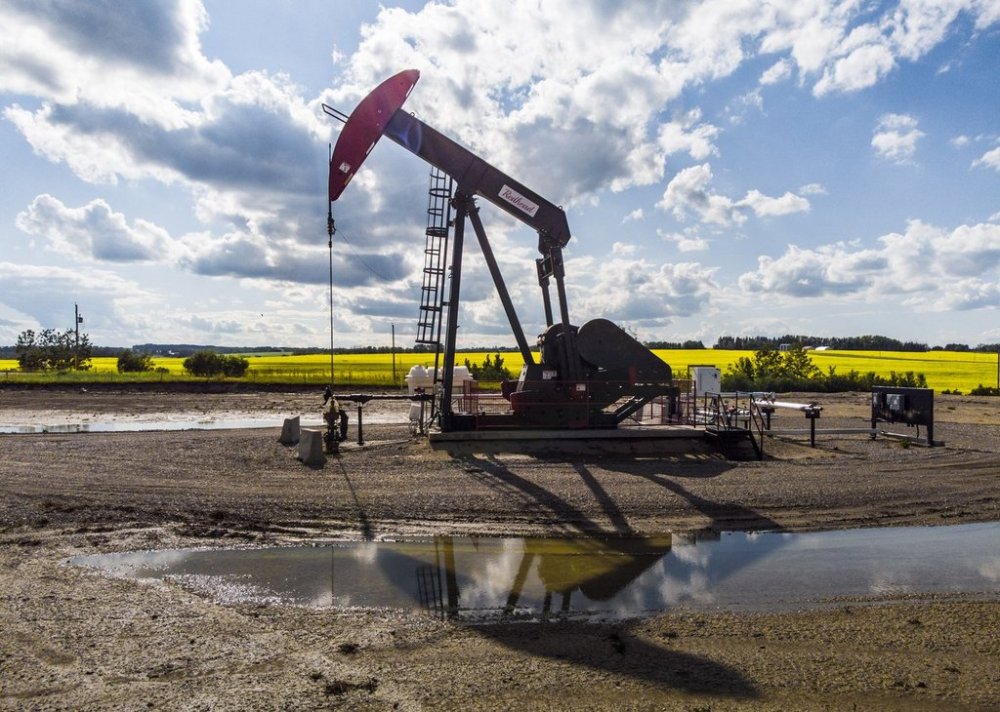Budget signals tone shift on oil and gas, but key details still unclear: experts
Advertisement
Read this article for free:
or
Already have an account? Log in here »
To continue reading, please subscribe:
Monthly Digital Subscription
$0 for the first 4 weeks*
- Enjoy unlimited reading on winnipegfreepress.com
- Read the E-Edition, our digital replica newspaper
- Access News Break, our award-winning app
- Play interactive puzzles
*No charge for 4 weeks then price increases to the regular rate of $19.00 plus GST every four weeks. Offer available to new and qualified returning subscribers only. Cancel any time.
Monthly Digital Subscription
$4.75/week*
- Enjoy unlimited reading on winnipegfreepress.com
- Read the E-Edition, our digital replica newspaper
- Access News Break, our award-winning app
- Play interactive puzzles
*Billed as $19 plus GST every four weeks. Cancel any time.
To continue reading, please subscribe:
Add Free Press access to your Brandon Sun subscription for only an additional
$1 for the first 4 weeks*
*Your next subscription payment will increase by $1.00 and you will be charged $16.99 plus GST for four weeks. After four weeks, your payment will increase to $23.99 plus GST every four weeks.
Read unlimited articles for free today:
or
Already have an account? Log in here »
The federal budget has signalled a shift in tone on the oil and gas sector, but experts say there’s still a lot of unknowns in how that will actually play out.
“The nexus between energy security, economic security, and national security is clearer than ever before,” Finance Minister François-Philippe Champagne said in the opening paragraph of a budget that commits to furthering the country’s standing as an energy superpower.
The budget included talk of potentially setting aside an emissions cap on oil and gas. It also includes measures like allowing the Canada Infrastructure Bank to support projects in the sector rather than limiting it to sustainability-linked projects.

The various moves show a government that’s more willing to acknowledge the strategic role of the oil and gas industry that will be around for some time, said Zach Parston, KPMG in Canada’s leader in national infrastructure, capital projects, and sustainability.
“The change is a change in tone,” he said.
“They make it clear the federal government is willing to … acknowledge the importance of the industry, and is willing to support it, and invest in it.”
The budget has also funded the major projects office that will help attract more investment into the sector, he said.
But it’s still unclear what the conditions will be on a potential lifting of the emissions cap, said Parston, which the government has said won’t be necessary if it goes ahead with fixing industrial carbon markets, implementing methane regulations and gets large-scale carbon capture up and running.
If the government had really wanted to boost certainty, it could have just scrapped the emissions cap outright, said Richard Masson, president of energy sector consultancy Planning Solutions Inc.
“It would have been very easy just to kill it, and that would have been a clear statement,” said Masson.
He said negotiations between the federal government and Alberta dealing with issues like industrial carbon pricing and the emissions cap have already been going on for some time, and the budget pushing for more stringent carbon pricing means more talk.
“That just means another bunch of years of uncertainty,” said Masson.
“It’s obviously a more positive tone, and people I talk to in Calgary are encouraged by that, but most people are going to say, you know, we look at what’s actually been done, and so far that’s not very much.”
Pathways Alliance did not respond to a request for comment.
Lisa Baiton, the president and CEO of the Canadian Association of Petroleum Producers, said the 2025 budget sends positive signals to the oil and natural gas sector, but further details are needed on rules that will align economic and climate objectives.
“Greater clarity is still needed on the policy reset required to increase investment in Canada’s oil and natural gas sector,” she said.
Strengthening industrial carbon pricing is important, said Pembina Institute oil and gas director Janetta McKenzie, especially as Alberta moves to weaken its regime.
“These are systems that really have the potential to drive millions in private capital towards low-carbon investment, including carbon capture.”
The budget also extended the timelines for tax credits around carbon capture project, an acknowledgment that there hasn’t been much movement there yet, said McKenzie.
She said the budget, however, was lacking key details like the timelines that emission measures will be fixed.
“We’re going to need to see more details about how the government plans to operationalize these in the near term.”
Nate Heywood, who covers energy infrastructure as managing director of equity research at ATB Capital Markets, said in an email that there are still concerns from the private sector on risking capital on projects, but there was some encouragement.
“The messaging around increased support and reduced red tape for nation-building projects, which could include pipeline infrastructure, is notionally positive for Canada to participate in the global market in a greater way.”
This report by The Canadian Press was first published Nov. 5, 2025.

